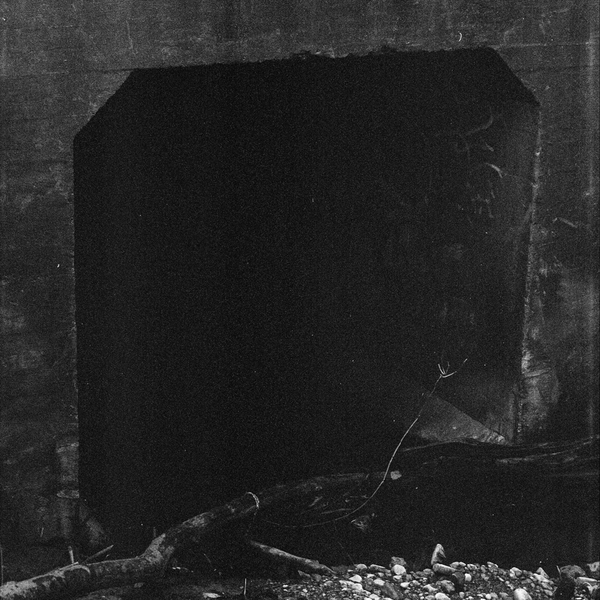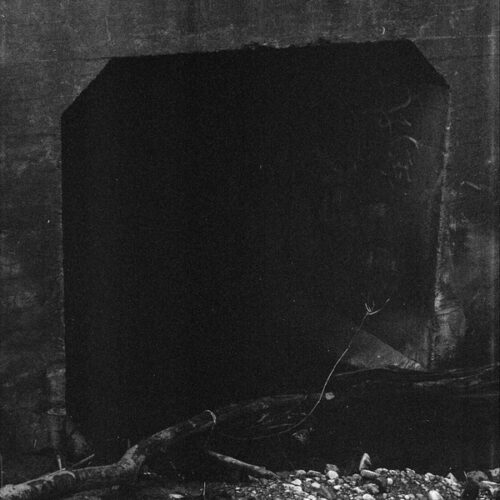Richie Culver paints a decrepit landscape in Hostile Environments. It’s a record that features a fusion of distorted synth sounds in amongst angst-ridden utterings as the artist wrestles with his own emotional well-being. Isolation and debilitating anxiety reverberate throughout the album, a soundscape akin to a space where nothing can grow, nothing can become.
Opening track ‘Difficult’ is perhaps illustrative of Hostile Environments as a whole. Culver’s musings here include “it was far more difficult this time”. An admission of being unable to “change” meets our ears in despondent fashion. Culver’s distorted voice, lower in tone and slower in tempo, emanates the sinister despite the supposed reverence Culver has for his former lover. Are these attempts at coming to terms with the emotional turmoil of the end of a relationship through optimistic self-reassurance (i.e. “you’d be better off without me”)? Or is there an element of self-deception as a mechanism to deal with the angst in amongst words said in spite to one another, signalling the beginnings of their eventual end? At times, disturbing synth chords envelop Culver’s words before increasing in decibel level then violently dissipating into nothingness. It’s perhaps indicative of the traumatic nature in which Culver and his partner parted.
The second track ‘Bedsit’ conveys Culver’s perturbation as he wastes away in a decrepit studio flat beset by paranoia, dejectedly (perhaps dangerously) and pedantically cross-examining the events of his failed relationship. His idle loneliness allows him time to question just how well he knew the person he loved, risking his own sanity whilst “picking up the scalps of the broken pieces on the floor” of his shattered relationship. It truly is gruesome. Hollow thuds within the audio of the track can be picked out, like a smothered irregular pulse indicative of a failing, ailing heart. Whether meant figuratively or literally, it is representative of Culver’s state of mind.
The tracks ‘Bedsit’, ‘Here We Go’ and ‘Dust’ are all plagued by repetitive eerie loops that form a soundscape of bareness, further reiterating the turbulent space of emotional turmoil in which Culver resides. Reverb, at times overwhelming, tends to drown out the fierce spoken words, both elements fighting one another to be heard – perhaps another reference to miscommunication between the artist and his former partner.
The sense of hostility is paramount throughout, though ‘Bells of Hope’, towards the end of the album, provides discernible respite (in parts). Chimes decorate what remains a backdrop of murky and experimentally resonant drone synths, like the glistening twinkles of the sun against the permafrost of the arctic tundra. Is Culver here contemplating the possibility of renewal, a new dawn? Yet the familiar ominous backdrop remains, threatening permanent stasis in this enervating, relationship-breakdown-driven realm that could very well be inescapable.
“Find a job that you like and you’ll never have do another day’s work in your life,” are perhaps the words of his former partner in ‘Changed My Style 4 U’, but they’re delivered in a dismal tone of resentment as if to suggest Culver himself is anti-capitalist but compromised on his political compass for love. Optimism is now dispelled as Culver divulges through sarcasm, elements of their former intimacy as he recalls how he reshaped his world for the person he is no longer with. Culver’s words “I took off my clothes for you”, shrouded in static are incredibly piercing as he begrudgingly reveals the level of vulnerability he showed to make the relationship work, providing insight into its intensity. In a marked change from ‘Bells of Hope’, Culver now spirals toward a point of near-hatred.
An intense dread pulsates throughout the record from gun to tape, with any intermissions of hope proving superficial. The listener must therefore wonder whether such a rut is temporary or representative of permanently altered brain chemistry, given the sonic wasteland that is Hostile Environments. You would be forgiven for requiring a deep breath upon reaching the record’s close.



